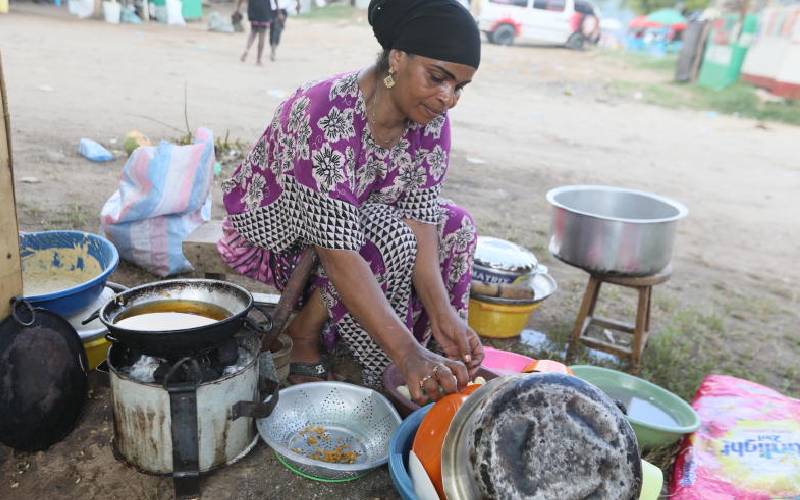×
The Standard e-Paper
Stay Informed, Even Offline

Small scale businesswoman, Faiza Ali Mohamed cooks at Jomo Kenyatta public beach in North Coast. [Omondi Onyango,Standard]
On his first visit to Kenya since being elected, Barack Obama told Kenyans: “You can’t grow your economy with just half of the population.”